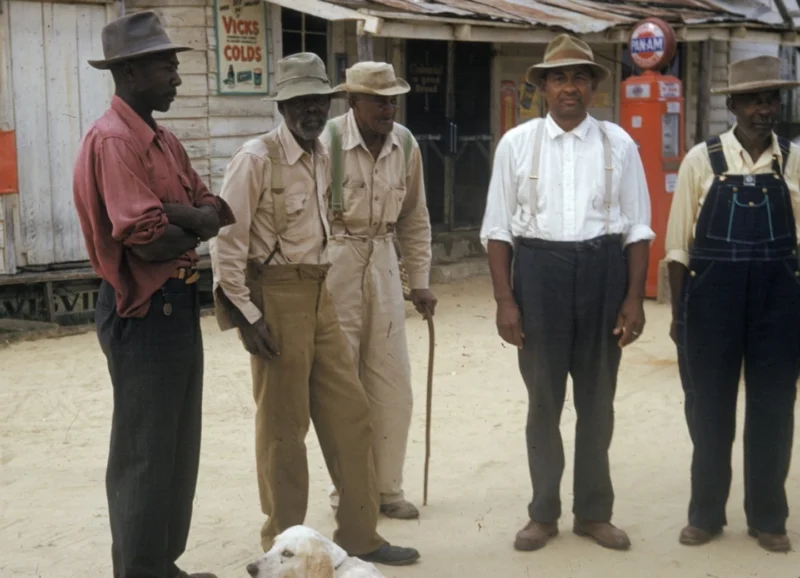Majority of Black Americans believe U.S. institutions are conspiring against them, poll finds
Share
Explore Our Galleries
Breaking News!
Today's news and culture by Black and other reporters in the Black and mainstream media.
Ways to Support ABHM?
By Ayanna Alexander and Matt Brown, from the Associated Press
More than 6 in 10 Black adults surveyed agreed that institutions such as the criminal justice system, the country’s economic system and policing are designed to hold Black people back.

Most Black Americans say they’ve experienced racial discrimination regularly or from time to time, which colors how they view U.S. institutions like policing, the political system and the media, according to a study on conspiracy theories.
The study released Monday by the Pew Research Center examined the intersection of race and conspiratorial beliefs. It’s the second installment in the research group’s series on how Black Americans see success and failure.
The study defines racial conspiracy theories as ideas that Black Americans might have about “the actions of U.S. institutions” that aren’t necessarily the stated goals of the institution. The study stresses that these are claims that Black Americans may have because of America’s documented history of racist policies largely impacting Black communities. Pew examined claims including conspiratorial beliefs about how major institutions discriminate against Black Americans and support for generational adages such as “you have to work twice as hard” to advance compared with white Americans.
For instance, the study found that more than 8 in 10 Black Americans surveyed agreed with the statement that “Black people are more likely to be incarcerated because prisons want to make money on the backs of Black people.” And more than 6 in 10 Black adults surveyed agreed that institutions such as the criminal justice system, the country’s economic system and policing are designed to hold Black people back.
Find more Breaking News here.
Explore our virtual exhibit galleries here.









Comments Are Welcome
Note: We moderate submissions in order to create a space for meaningful dialogue, a space where museum visitors – adults and youth –– can exchange informed, thoughtful, and relevant comments that add value to our exhibits.
Racial slurs, personal attacks, obscenity, profanity, and SHOUTING do not meet the above standard. Such comments are posted in the exhibit Hateful Speech. Commercial promotions, impersonations, and incoherent comments likewise fail to meet our goals, so will not be posted. Submissions longer than 120 words will be shortened.
See our full Comments Policy here.